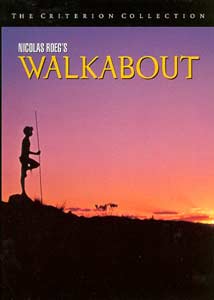The House of Mirth
 It is my lament that costume dramas fail to receive much discussion around these parts. Both The Wings of the Dove and Sense and Sensibility flirt with greatness in my eyes, but ultimately it comes down to which film most profoundly disturbed me about its themes of possession and the delicacy of social status, and thus Terence Davies’ adaptation of Edith Wharton’s The House of Mirth (2000) becomes the obvious pick. Courtly love and procuring a spouse never hinged on such financial stability, and courtly love thus becomes a minefield of manipulation and masochistic desire.
It is my lament that costume dramas fail to receive much discussion around these parts. Both The Wings of the Dove and Sense and Sensibility flirt with greatness in my eyes, but ultimately it comes down to which film most profoundly disturbed me about its themes of possession and the delicacy of social status, and thus Terence Davies’ adaptation of Edith Wharton’s The House of Mirth (2000) becomes the obvious pick. Courtly love and procuring a spouse never hinged on such financial stability, and courtly love thus becomes a minefield of manipulation and masochistic desire.Davies extends Wharton’s critiques on the historical limitations of women, where prodigious women who desire material and financial comforts must marry well by presenting themselves to men as commodities. The Lady in courtly love assumes no inner identity, but always remains a thing whose blank surface internalizes the ideals that the man desires for her. Lily Bart’s refusal to be narcissistically prized generates a subjectivity that is adamantly unlike the projection of the Lady. Because of her independence, Lily (Gillian Anderson) sees herself as separate from this commodification and thus able to comment on women’s submission to their mates.
When she ruins a chance at a spouse, Lily turns to Lawrence Selden (Eric Stoltz), her confidant and close friend for support. That these two feel a kinship for one another is noticeable from the first. He even appeals to her sense of integrity, noting that such wooing is essentially debasement. Still, while he believes that her wooing of men for financial benefit cheapens her, Selden cannot bring himself to consummate their relationship precisely because he knows that he lacks the very commodities that he endeavors to break her of, which, in turn, reveals that Selden orders his life by the same conditions that he teaches her to abhor.
This is a film that is fated to end miserably, but in its critique of the gender and social limitation toward women, it is profoundly liberating. By casting a clear indictment about the inequities presented for women throughout the nineteenth century, The House of Mirth becomes powerfully meaningful, allowing its criticism to extend throughout all social classes, becoming both backward-looking and strangely prescient.
The House of Mirth: 10/10







